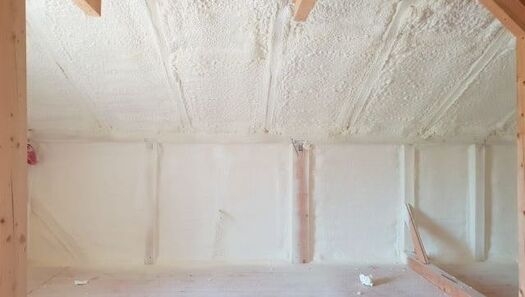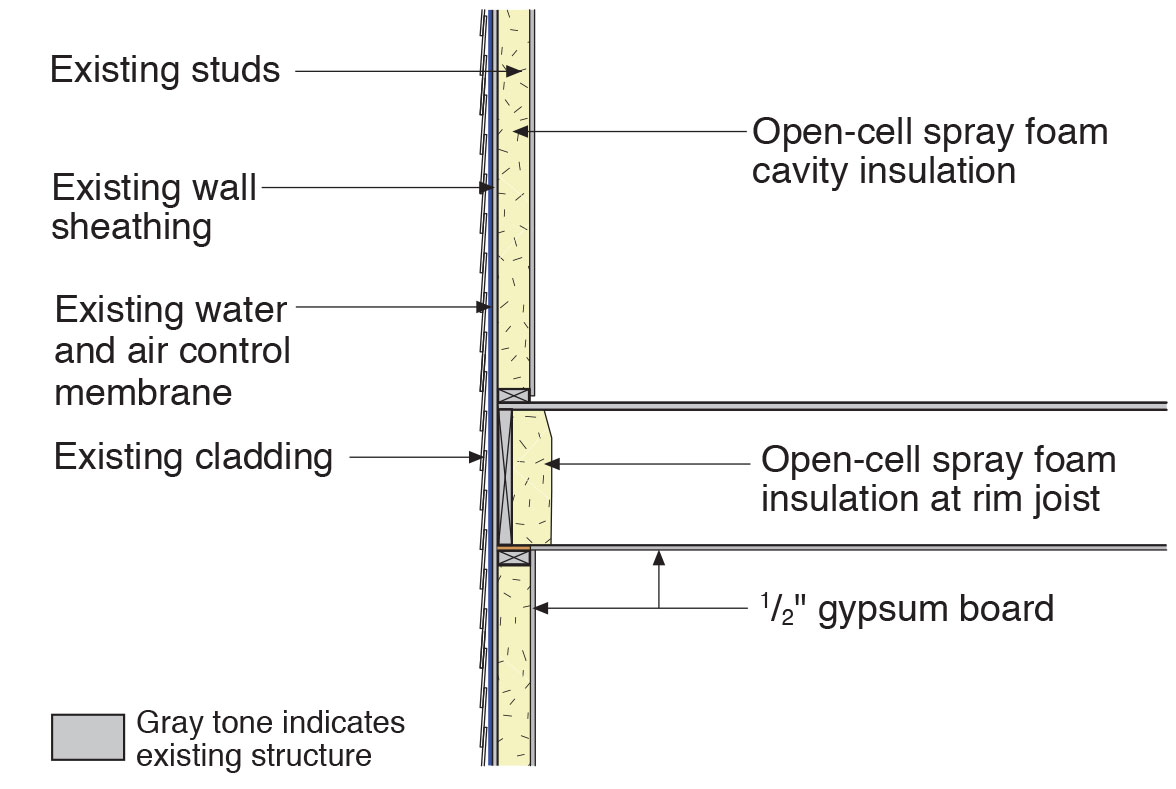Discover the Hidden Value of Spray Foam for Your Property in Tallahassee, FL

If you're a homeowner in Tallahassee aiming to improve your home's energy efficiency, lower utility bills, and shield your property from the area's high humidity and frequent moisture-related issues, spray foam insulation is one of the most impactful upgrades you can make. This isn’t just insulation—it’s a transformative solution that enhances indoor comfort, maintains stable indoor temperatures, improves air quality, and even reinforces the structural integrity of your home.
In this detailed guide, we’ll explore the practical, technical, and economic benefits of spray foam insulation, especially for Florida’s climate. From material comparisons to pre-installation planning, every section is crafted to help you make an informed, confident decision. Whether you're constructing a new home, retrofitting an attic, or upgrading an older property, spray foam offers advantages that extend well beyond temperature regulation. You’ll also find key homeowner insights, real-world application advice, and bonus tips to maximize your investment.
Why Spray Foam Insulation Pays Off in Tallahassee
Spray foam insulation stands out because it works as both a thermal insulator and an effective air-sealing solution. This double-duty performance is crucial in Tallahassee, where heat and humidity are constant challenges that impact both energy costs and building health. Its ability to manage air infiltration and moisture makes it uniquely suited to southern climates, offering durability and peace of mind for decades.
Key Advantages at a Glance:
- Air Sealing Capabilities: Blocks outside air from entering and conditioned air from escaping, easing the load on HVAC systems.
- Energy Efficiency: Homeowners often see energy savings between 15% and 30%—sometimes more, depending on home size and system efficiency.
- Moisture Control: Prevents mold, mildew, and rot by minimizing moisture entry through walls and floors.
- Long-Term Reliability: Offers 20 to 30 years of high performance with little maintenance.
- Sound Dampening: Particularly with open cell foam, reduces noise intrusion from outside and between rooms.
- Improved Indoor Air Quality: Reduces allergens, dust, and pollution infiltration.
- Climate Adaptability: Spray foam performs reliably in both hot summers and cooler winters.

Bonus Tip: Closed cell spray foam not only insulates but can also enhance the strength of your home’s walls and roof—ideal in hurricane-prone regions like Florida.
Comparing Common Insulation Materials
Understanding how spray foam stacks up against traditional options helps clarify its value. Here’s a side-by-side comparison based on performance, moisture resistance, and longevity:
|
Insulation Type |
R-Value (per inch) |
Air Sealing |
Moisture Barrier |
Lifespan |
Ideal Use Cases |
|
Closed Cell Spray Foam |
6.5 |
Excellent |
Excellent |
20–30 yrs |
Basements, crawl spaces |
|
Open Cell Spray Foam |
3.7 |
Very Good |
Moderate |
20–25 yrs |
Attics, ceilings |
|
Blown-In Cellulose |
3.5 |
Good |
Moderate |
10–15 yrs |
Attic retrofits, wall cavities |
|
Fiberglass Batt & Blown-In |
3.1–3.8 |
Moderate |
Low |
10–15 yrs |
New constructions, simple jobs |

Spray foam leads in combined performance areas, especially where insulation and moisture control are both needed. Unlike traditional materials that often degrade faster in humid climates, spray foam resists breakdown and retains its insulating properties long-term.
How Spray Foam Insulation Works
Spray foam begins as two liquid components that combine and expand when sprayed into walls, ceilings, or floors. It rapidly fills gaps and hardens into a solid, energy-efficient barrier. There are two main types:
Closed Cell Spray Foam:
- Dense and hard, forming a rigid layer
- Higher R-value for superior insulation
- Effective vapor and moisture barrier
- Adds structural strength to walls and roofs
Open Cell Spray Foam:
- Soft and lightweight
- Expands significantly to fill cavities
- Offers excellent soundproofing
- More budget-friendly than closed cell foam
This expansion allows spray foam to seal off spaces traditional insulation might miss, offering better all-around performance. It’s especially useful in hard-to-reach areas and around obstructions like pipes and ductwork.
Technical Comparison Table
|
Feature |
Closed Cell Foam |
Open Cell Foam |
|
R-Value per Inch |
6.5 |
3.7 |
|
Moisture Resistance |
High |
Moderate |
|
Vapor Barrier |
Yes |
No |
|
Structural Enhancement |
Yes |
No |
|
Sound Absorption |
Moderate |
Excellent |
|
Price per Sq. Ft. |
Higher |
Lower |
|
Common Applications |
Basements, walls |
Attics, ceilings |
Bonus Tip: A combination of both types can be used—closed cell for moisture-prone zones, and open cell for sound-sensitive areas, optimizing comfort and cost.
What to Evaluate Before Insulating Your Home
Making the switch to spray foam? Here are essential factors to consider before starting your project:
1. Florida’s Climate and Humidity
Closed cell foam resists moisture better than other types—essential in Tallahassee’s humid environment.
2. Ventilation and HVAC Readiness
Tightly sealed homes may require upgrades to HVAC systems for balanced airflow. Proper ventilation ensures comfort and prevents air stagnation.
3. Local and Federal Incentives
Check with utility providers or energy offices for rebates, tax credits, or incentives that can reduce your upfront costs.
4. Existing Insulation and Home Condition
Older homes might have outdated or degraded insulation. Assess whether removal is needed before installing spray foam.
5. Indoor Health Considerations
Allergy sufferers benefit from spray foam’s ability to reduce allergens and airborne pollutants.
Bonus Tip: Consider crawl space encapsulation for maximum moisture protection and a healthier, more energy-efficient foundation.
Frequently Asked Questions About Home Insulation
How long does spray foam insulation last?
With proper installation, it can last 20 to 30 years or more.
Is spray foam insulation safe for homes?
Yes, once it has cured, it’s stable, non-toxic, and safe for indoor environments.
Can it be applied over old insulation?
Sometimes, but only if the existing material is dry and free of mold or damage. Professional inspection is key.
Will it really save me money?
Yes. Reduced heat loss and air leakage usually translate into noticeably lower energy bills.
Which type is better: open or closed cell?
Closed cell is stronger and better at blocking moisture; open cell is more affordable and great for sound control.
Finding the Right Insulation Expertise
Choosing insulation is more than just picking a product—it’s about ensuring comfort, efficiency, and durability for years to come. For those who need expert advice or services like insulation removal, air sealing, or crawl space encapsulation, Premier Insulation is a knowledgeable provider with hands-on experience in Florida’s unique building challenges.
Readers can learn more about Premier Insulation's services:
- Company: Premier Insulation
- Phone: (229) 554-3939
- Email: premiereinsulationga@gmail.com
- Questions and Answers
- Opinion
- Motivational and Inspiring Story
- Technology
- Live and Let live
- Focus
- Geopolitics
- Military-Arms/Equipment
- Security
- Economy
- Beasts of Nations
- Machine Tools-The “Mother Industry”
- Art
- Causes
- Crafts
- Dance
- Drinks
- Film/Movie
- Fitness
- Food
- Games
- Gardening
- Health
- Home
- Literature
- Music
- Networking
- Other
- Party
- Religion
- Shopping
- Sports
- Theater
- Health and Wellness
- News
- Culture

